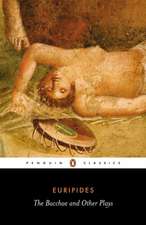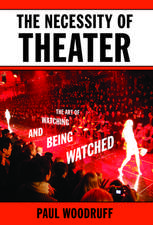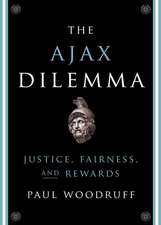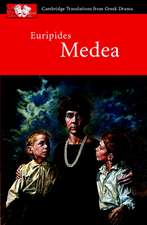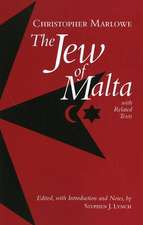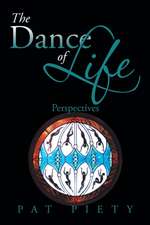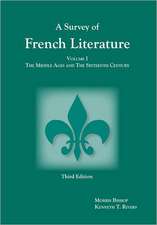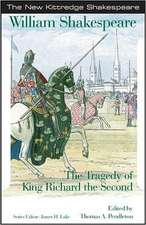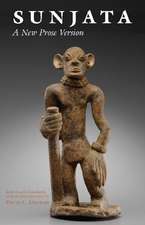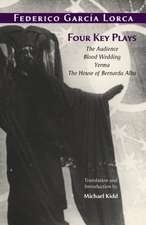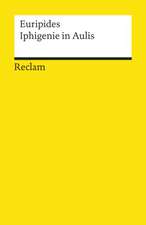Euripides: Medeia
Autor Euripides Traducere de Gwyneth Lewisen Limba Engleză Paperback – 25 oct 2016
Euripides' Bakkhai is the staple of the canon of Greek tragedy and is required or strongly recommended reading for most undergraduate Classics majors. It also surfaces quite often in non-classics courses focusing on tragedy because its structure and thematics offer exemplary models of the classic tragic elements. The plot of Bakkhai centers around the actions of Pentheus, King of Thebes, who refused to recognise the god Dionysus or permit Thebans to worship him. In revenge, Dionysus drove Pentheus mad, made him cross-dress as a maenad, sent him to worship the god he had spurned, and made his mother, Agave, mistake him for a wild beast and rip him to shreds. Gibbons, a prize-winning poet, and Segal, a renowned classicist, are both leaders in their professions and are well-suited to take on this central text of Greek tragedy. This edition includes an introduction, a new translation, notes on the text, and a glossary.
| Toate formatele și edițiile | Preț | Express |
|---|---|---|
| Paperback (4) | 86.31 lei 31-37 zile | |
| Hackett Publishing Company – 14 mar 2011 | 96.92 lei 3-5 săpt. | |
| Oxford University Press – feb 2001 | 86.31 lei 31-37 zile | |
| Oxford University Press – 18 ian 2001 | 140.23 lei 31-37 zile | |
| Oxford University Press – mai 1999 | 160.44 lei 31-37 zile | |
| Hardback (1) | 453.20 lei 3-5 săpt. | |
| Oxford University Press – mai 1999 | 453.20 lei 3-5 săpt. |
Preț: 53.21 lei
Nou
Puncte Express: 80
Preț estimativ în valută:
10.18€ • 11.07$ • 8.56£
10.18€ • 11.07$ • 8.56£
Carte indisponibilă temporar
Doresc să fiu notificat când acest titlu va fi disponibil:
Se trimite...
Preluare comenzi: 021 569.72.76
Specificații
ISBN-13: 9781906396992
ISBN-10: 190639699X
Pagini: 64
Dimensiuni: 174 x 127 x 9 mm
Greutate: 0.08 kg
Editura: Cyhoeddiadau Barddas
ISBN-10: 190639699X
Pagini: 64
Dimensiuni: 174 x 127 x 9 mm
Greutate: 0.08 kg
Editura: Cyhoeddiadau Barddas
Recenzii
this translation merits serious thought for classroom and even scholarly use. Of particular interest is Segal's extensive reconstruction of the lacunae that mar the end of the Bakkhai, including the so-called compositio membrorum of Pentheus.
Gibbons ... has crafted a lyrical verse translation that displays an evident understanding of and respect fo the source text.
This is a lovely, thoughtful edition of the play, and between Gibbon's sturdy verse and Segal's sensitive notes, one can hardly go wrong in assigning the text to an introductory literature class. And even more advanced students of Greek tragedy will wish to examine Segal's valuable appendix on the compositio membrorum, a succinct and insightful bit of scholarship in its own right.
Gibbons ... has crafted a lyrical verse translation that displays an evident understanding of and respect fo the source text.
This is a lovely, thoughtful edition of the play, and between Gibbon's sturdy verse and Segal's sensitive notes, one can hardly go wrong in assigning the text to an introductory literature class. And even more advanced students of Greek tragedy will wish to examine Segal's valuable appendix on the compositio membrorum, a succinct and insightful bit of scholarship in its own right.

